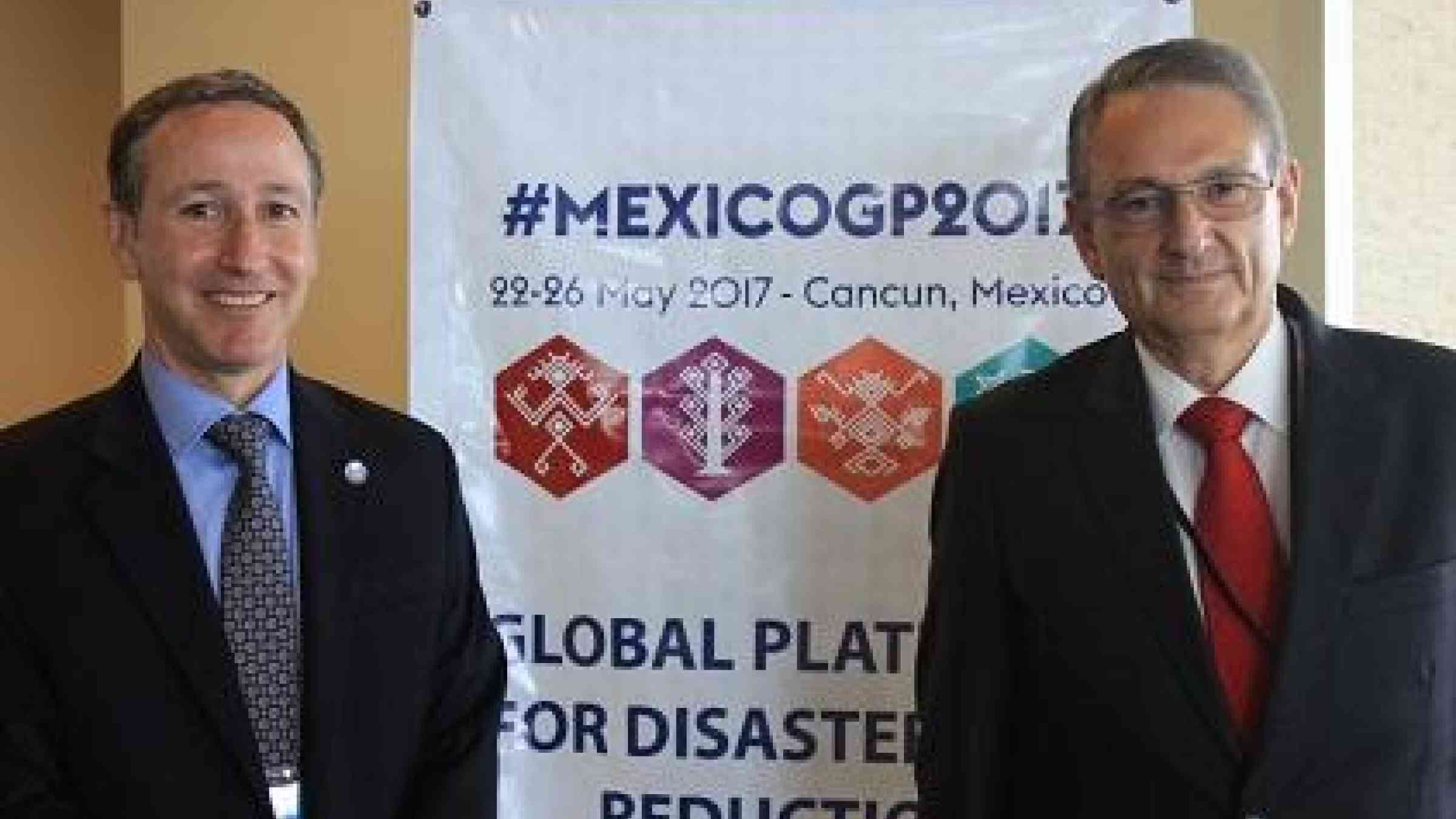Extreme weather the “new normal”

NEW YORK, 21 July 2016 – Extreme weather events are becoming the “new normal” and climate change is compromising people’s resilience, meaning that humanitarian action and development must be part of the same process, United Nations Deputy Secretary-General Mr. Jan Eliasson has told a meeting on disaster risk reduction.
Mr. Eliasson spoke at a special briefing convened by Mexico – host of next year’s Global Platform for Disaster Risk Reduction – during the High Level Political Forum on Sustainable Development that wrapped up yesterday at UN Headquarters in New York.
Reducing disaster risk among the world’s poorest and most marginalised communities is critical to ensure that “no one is left behind” -- the theme of the High Level Political Forum. The forum, from 11 to 20 July, has been taking stock of plans to implement the globe’s Sustainable Development Goals, set last September.
Disasters continue to destroy lives and livelihoods, damage critical assets, stifle sustainable development, and further entrench the poverty and exclusion of marginalised communities across the world.
Over the course of the High Level Political Forum, governments have called for an integrated and coherent approach to implementing the interlinked international agreements adopted in 2015 - the Sendai Framework for Disaster Risk Reduction, the Addis Ababa Action Agenda on financing for development, the 2030 Agenda for Sustainable Development, and the Paris Agreement on climate change. These agreements share a common aim of shifting the world onto a sustainable path and building resilience.
The Government of Mexico organised the New York meeting to brief governments, the UN system and civil society organisations about the Global Platform for Disaster Risk Reduction, which will take place from 22-26 May 2017 in the city of Cancún.
The world's foremost gathering on reducing disaster risk and building resilience, the Global Platform was first held in 2007 and brings together senior leaders from government, business and civil society. The deliberations of the 2017 Global Platform are also expected to inform the discussions of the next High Level Political Forum for Sustainable Development, expected to be held later in 2017.
The first Global Platform to be held since the adoption of the Sendai Framework and the other international agreements struck in 2015, the conference in Mexico will provide a key opportunity to review progress over the past two years and chart a course that integrates efforts across the board.
It will also mark an important opportunity for all governments and stakeholders to share creative and innovative local, national and regional solutions to reduce disaster risk, noted Ambassador Miguel Ruiz Cabañas, Mexico’s Vice Minister for Multilateral Affairs and Human Rights.
Drawing on Mexico’s 30 years of experience in integrating disaster risk reduction across public policies, Mr. Luis Felipe Puente Espinosa, its National Coordinator of Civil Protection, suggested that countries could benefit from a regional approach to monitoring shared vulnerabilities.
Speaking on behalf of Mexico’s President Enrique Peña Nieto, Mr. Puente invited all governments and civil society to take part in the Global Platform.